Seattle CARES Mentoring Movement recently received a grant from the Washington Youth Development Nonprofit Relief Fund, administered by the Washington State Department of Commerce and School’s Out Washington.
The grant acknowledges the financial and programmatic challenges faced by Seattle CARES and other youth development organizations during the coronavirus pandemic. Not only did Seattle CARES have to move quickly during the spring of 2020 to adapt its youth mentoring program, The Rising, to an online platform when Seattle Public Schools closed its in-person classes, but it also had to arrange for laptops and computers for youth who did not have them and help families get internet access.
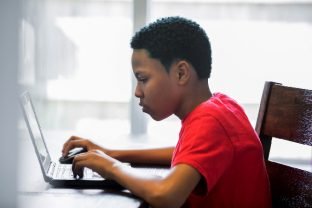
“We reached out to our community partners to supply computer equipment, financial and technical support,” said Seattle CARES Executive Director Don Cameron. “If families needed rent support or food, we linked them up with agencies that could help. We were determined not to let our students or families down.”
When the school year resumed in September, Seattle CARES added a weekly online tutoring session to provide The Rising students with additional support in math, science and language arts as well as provide tips on how to study more productively and how to take tests. The Rising is a three-year mentoring program for boys enrolled in Denny International and Meany middle schools.
Seattle CARES goes beyond just serving youth; it also reaches brothers and sisters and parents, too. For families with older children struggling academically or socially, Seattle CARES now offers an online high school group-mentoring program that meets twice a month and targets young men and women in grades 8-12. Regular wellness circles to support moms, dads or other family members are offered remotely, as well.
In all, the Washington Youth Development Nonprofit Relief Fund awarded $9.4 million to 421 youth development organizations across the state, focusing on groups that serve priority and at-risk populations. Award amounts ranged from $10,000 to $50,000.
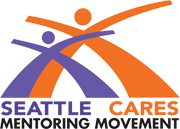

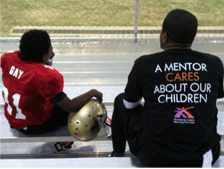 This week, Seattle CARES and some of its partner agencies are launching tutoring sessions for core subject areas for students in its
This week, Seattle CARES and some of its partner agencies are launching tutoring sessions for core subject areas for students in its 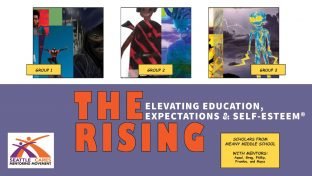 But the virtual environment posed a new set of challenges for Seattle CARES: How to keep the students engaged. The Rising team reached out to the scholars for ideas.
But the virtual environment posed a new set of challenges for Seattle CARES: How to keep the students engaged. The Rising team reached out to the scholars for ideas.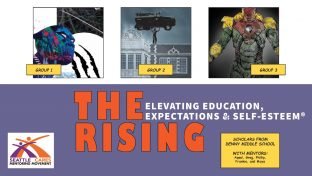 Working on the superhero stories provided an outlet to explore tensions. The creative consultants saw how the ideas and thought processes of the scholars made their creations vivid and rich. As the program ended, the scholars were encouraged to introduce as much of themselves as possible into their chosen hero-templates.
Working on the superhero stories provided an outlet to explore tensions. The creative consultants saw how the ideas and thought processes of the scholars made their creations vivid and rich. As the program ended, the scholars were encouraged to introduce as much of themselves as possible into their chosen hero-templates.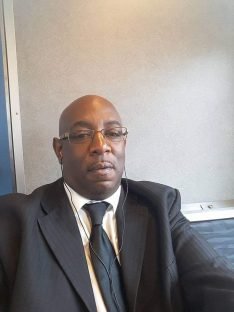 Greg Banks has been a Seattle CARES mentor since we launched
Greg Banks has been a Seattle CARES mentor since we launched